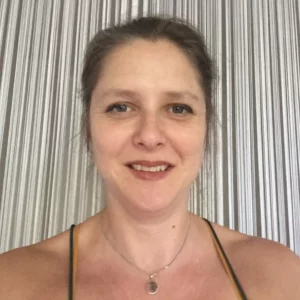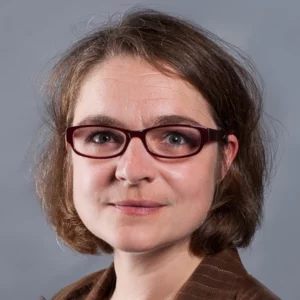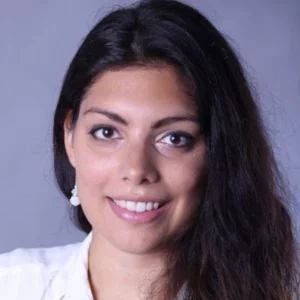Cooperation Creates Work. Promoting Cooperations in the Independent Performing Arts
Lecture at the "Transformationen der Theaterlandschaft" Symposium
Prof. Dr. Veronika Darian, Dr. Melanie Gruß, Athalja Haß, Verena Sodhi, Universität Leipzig
Exposé
Cooperations are a shapeable field of negotiation in the independent performing arts. Under the auspices of crisis conditions and global (technological, social, media, economic, ecological, etc.) developments, they are the indicator and testing space for the current social situation and condition in cultural politics and the theater landscape that is anchored to it. The relevance of historically grown spaces and the independence of the respective cooperation partners in factors of labor biographies, society, politics and site-specificity can be clearly read from concrete relationships of cooperation and their support. In them, various different developments of the independent performing arts have been having an effect up until the present day in, among others, urban contexts, structurally weak regions and spaces that have been pushed to the periphery in east and west Germany. They raise questions of power relationships, points of access, distribution of resources and needs. In focus-group discussions, expert interviews as well as a survey of 445 artists and production venues, questions were raised on the comparative practice in the meaning, shape and effect of cooperations and already existing cooperative funding programs.
Thus funding measures in the current crisis situations and their success are also based on the existence or the lack of cooperative relationships, structures and working methods from the period before the crises. Where cooperation exists, it strengthens the independent performing arts. Where cooperation is supported, this effect is multiplied. Despite this fact, cooperation support has, up to this point, only been rarely realized as an autonomous support format. “Core” cooperations between production venues and artists must be considered with multi-lateral structures of cooperations, networks and connections and be more strongly interconnected in funding. Coproduction, residency and network support operates best hand-in-hand and has a sustainable effect in the independent performing arts through the means of knowledge transfers, further education offers and resource focus. It should recognized that cooperation in all levels of artistic processes – whether in conception, coproduction or coordination – is in itself work; it should be supported and funded.
Thus our suggestions for a future funding of cooperations are the following:
First: the establishment of an autonomous area within existing support architectures that is dedicated exclusively to cooperation funding. Second, this should be organized in various modules that can react flexibly, appropriately and precisely towards the respective needs as well as the extraordinarily various historic, structural, personal, financial, conceptual etc. conditions. The support structures should also, third, be defined by respectively suitable objectives that are not equally relevant for all partners: the possible initiation of cooperations must be considered just as much as cooperation work within artistic individual projects or an infrastructural cooperation funding.
A sustainable and crisis-proof design of the future theater landscape in the entire federal republic will not get around local anchors and supra-regional networks as they create places for education, production and meetings, alone and in associations – as equal points of contact for the audience, artists and cultural politics. Embedded in a systematically interlocking, intelligently coordinated and commonly communicating support architecture between communes, federal states and the federal government, it would be an important step towards a balanced, resilient and stabilization of the independent performing arts.
Involved
-
Prof. Dr. Veronika Darian
University of Leipzig
 © privat
© privat
Prof. Dr. Veronika Darian
University of LeipzigVeronika Darian is Junior Professor for Contemporary Theatre in Historical Perspective with a focus on transmediality and transculturality at the Institute of Theatre Studies at the University of Leipzig and board member of the Centre of Competence for Theatre there. After studying musicology, theater, German and Italian studies in Bonn and Leipzig, she received her doctorate on "Theater der Bildbeschreibung" (Munich 2011). Other publications (selection): "Gestische Forschung. Perspektiven und Praktiken" (Mithg., Berlin 2020), "Die Praxis der/des Echo. Zum Theater des Widerhalls" (Mithg., Frankfurt/M. 2015) and "Mind the Map! - History Is Not Given" (Mithg., Frankfurt/M. 2006). She researches, publishes, and teaches, increasingly collaboratively, especially on foreignness studies, theater studies of age(s) and thing(s), biography and narration in theater, dance, and performance, theater in society(s) in transformation, and "sites of stubbornness." She is working on the sub-study on the promotion of co-operations together with Dr. Melanie Gruß and Verena Sodhi, B.A., with whom she has already collaborated on the evaluation of the Bündnis internationaler Produktionshäuser (Alliance of International Production Houses).
-
Dr. Melanie Gruß
University of Leipzig
 © privat
© privat
Dr. Melanie Gruß
University of LeipzigMelanie Gruß has been a research assistant at the Institute of Theater Studies at the University of Leipzig and at the Tanzarchiv Leipzig e.V. since 2018. She studied theater studies, psychology, and general and comparative literature in Leipzig and Paris. With the dissertation "Synästhesie als Diskurs. Sehnsuchts- und Denkfigur zwischen Kunst, Medien und Wissenschaft" she received her PhD in 2015, supported by a scholarship from the Free State of Saxony. Her research focuses on theater, dance, and cultural history of modernity, linkages between cultures of movement and knowledge, and interfaces between the arts, media, and sciences. In addition to teaching at the Institute of Theater Studies, she is currently involved in various projects (evaluation of the Bündnis internationaler Produktionshäuser, development of NFDI4culture, Tanz digital) and is working on her own research project on the history of the Tanzarchiv Leipzig and dance research in the GDR.
-
Verena Sodhi
University of Leipzig
 © privat
© privat
Verena Sodhi
University of LeipzigVerena Sodhi trained as a stage dancer and dance teacher at the Ballettförderzentrum in Nuremberg, specializing in classical ballet. She is currently studying transcultural theater studies in the master's program at the University of Leipzig. She has been working for the Tanzarchiv Leipzig e.V. since 2019, among other things on the evaluation of the alliance of international production houses, and as a student assistant at the Institute of Theater Studies. She has been teaching classes in classical ballet, children's dance, and modern jazz for several years. Her research focuses on dance research and mediation, as well as contemporary theater and performance formats.